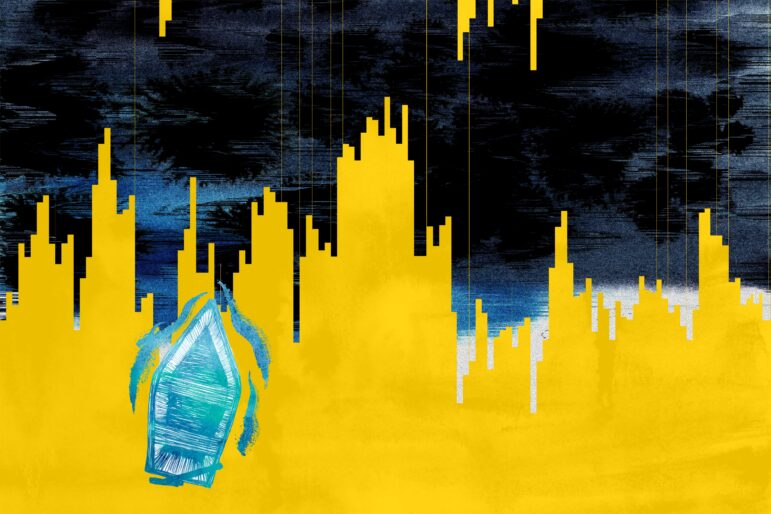
Illustration: Smaranda Tolosano for GIJN
Guide
Guide: Introduction to Investigative Journalism
Read this guide in
While there is plenty of online training on advanced research techniques, at the Global Investigative Journalism Network (GIJN) and iMEdD’s training pillar, Ideas Zone, we recognized a significant need for basic investigative journalism skills.
As a result, we put together this guide – part of the ‘Introduction to Investigative Journalism’ program implemented collaboratively in 2024 – and recruited some of the top investigative journalists from around the world to write it.
The chapters are by: Jelena Cosic (ICIJ), Wahyu Dhyatmika (Tempo), Emilia Díaz-Struck (GIJN), Mariam Elba (ProPublica), Will Fitzgibbon (The Examination), Brant Houston (University of Illinois), Karol Ilagan (University of the Philippines), Purity Mukami (OCCRP), Miranda Patrucic (OCCRP), Runa Sandvik (Granitt), Hamadou Tidiane Sy (Ouestaf News), Shereen Youssef (BBC Verify), Marina Walker (Pulitzer Center), and Margot Williams (The Intercept).
The guide was edited by Nikolia Apostolou, Jabeen Bhatti, John Dyer, Martha Hamilton, Reed Richardson, and Alexa van Sickle. Chapters were fact-checked by Jabeen Bhatti, Martha Hamilton, and Katrina Janco.
Legal advice was provided by The Cyrus R. Vance Center for International Justice.
The project wouldn’t have been possible without the help and support of GIJN and iMEdD staff:
From GIJN:
Resource Center Director: Nikolia Apostolou, Executive Director: Emilia Díaz-Struck, Regional Editors and Associate Editors: Aïssatou Fofana, Maxime Domegni, Benon Oluka, additional assistance: Leonardo Peralta, Illustrations: Smaranda Tolosano
From iMEdD:
Co-founder and Managing Director: Anna-Kynthia Bousdoukou, Head of the Incubator and Ideas Zone: Dimitris Bounias, Project Managers: Nikolas Aronis, Nota Vafea, and Katerina Voutsina, Art Director: Evgenios Kalofolias
The guide was published simultaneously in English and Greek.
Chapters
Chapter Guide Resource
Introduction to Investigative Journalism
Investigations have underlying principles, elements, and rigorous requirements for evidence, accuracy, and fairness. They also require strong and detailed planning.
Chapter Guide Resource
Introduction to Investigative Journalism: Finding Sources and Backgrounding People, Public Records, Freedom of Information
Sourcing starts with thinking about our goals for a story. This chapter shares a step-by-step guide for finding sources for investigations.
Chapter Guide Resource
Introduction to Investigative Journalism: Interviewing Techniques for Beginners
This chapter looks at various types of interviews, approaches, and techniques for getting the most out of contact with sources, both friendly and antagonistic.
Chapter Guide Resource
Introduction to Investigative Journalism: Deep Internet Research: Leveraging Open-Source Research and Verification Techniques
This chapter guides you through advanced research techniques, including the use of open source intelligence tools and verification methods.
Chapter Guide Resource
Introduction to Investigative Journalism: Following the Money
Following the money is a complex set of techniques that allow reporters to track the flow of money across the world.
Chapter Guide Resource
Introduction to Investigative Journalism: Data Journalism
As the use of the internet spread and increasing amounts of data emerged, the term “data journalism” arose to describe reporting powered by data and analysis.
Chapter Guide Resource
Introduction to Investigative Journalism: Fact-Checking
Fact-checking takes apart the reporting to ensure it is solid, accurate, and fair, a critical task for newsrooms.
Chapter Guide Resource
Introduction to Investigative Journalism: Digital Security
Digital security may seem a little daunting at first, but increased security will help investigative journalists build trust with — and protect — current and future sources.
Chapter Guide Resource
Introduction to Investigative Journalism: Collaborations
The rewards of collaborating can be huge for investigative journalists: greater visibility of your story, increased potential for impact and in some cases better protection.
Chapter Guide Resource
Introduction to Investigative Journalism: Editing: The Investigative Article
Editing an investigative story is more than hunting grammatical errors, ensuring clarity, or additional fact-checking at the end of a story production process.










